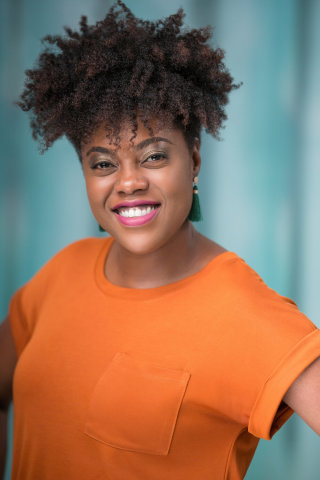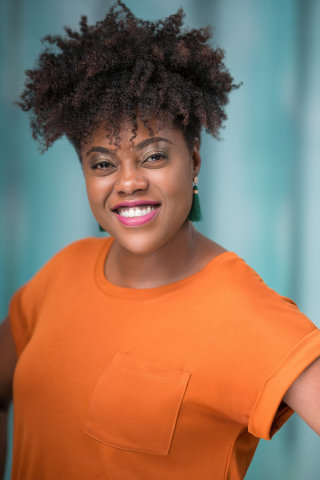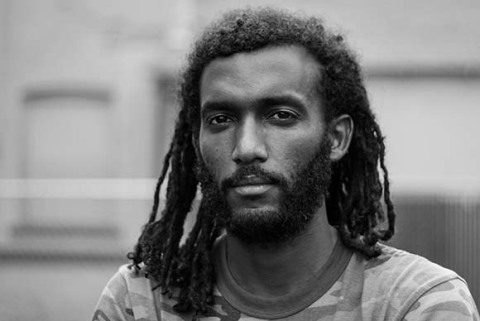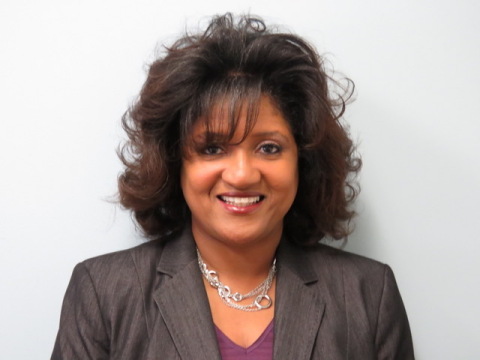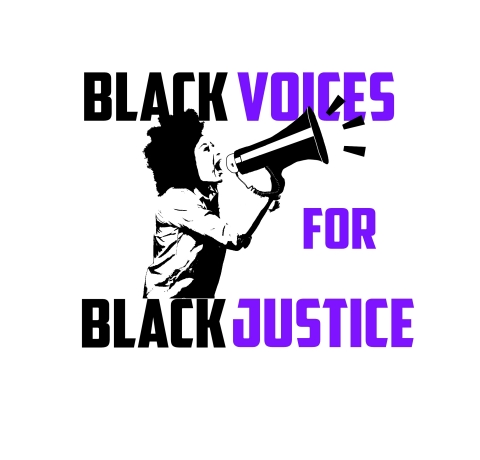WASHINGTON--(BUSINESS WIRE)--In the wake of white supremacists attempting to overthrow the federal government and Black Americans continuing to be disproportionately affected by the pandemic and economy, a new racial justice fund is doubling down on its support of Black activists who are leading the urgent movement to build a fair, equitable, and anti-racist America.
After receiving over 600 nominations, the Black Voices for Black Justice Fund today announced its second round of awardees, focusing on Black leaders in Colorado, Georgia, North Carolina and Washington, DC. Each will receive $20,000 to use however they believe will do the most good in building an anti-racist America.
In announcing the newest awardees, former U.S. Secretary of Education John B. King, Jr. said, “Amidst horrifying threats to our democracy, the devastating consequences of COVID-19, and our long overdue national reckoning with issues of racial justice, I am grateful that BVBJ is investing in visionary Black leaders working to protect voting rights, keep families in their homes, ensure access to healthy food, advance education equity, and build a more just future for our country.”
Nineteen new awardees join the 31 initial awardees selected during Round 1, all of whom are being recognized for their leadership in changing systems of oppression, violence and inequality. The new awardees include:
- Dr. Jeanine Abrams-McLean (Fair Count, Tucker, GA) serves as President of Fair Count, a nonpartisan nonprofit that has been working to ensure a fair and accurate count for the 2020 Census in Georgia and nationally. An evolutionary biologist by training, Dr. Abrams-McLean previously worked at the Centers for Disease Control and Prevention, where she applied her expertise in computational biology and population-based studies to help understand and control the spread of antibiotic resistance. In addition to her research in public health, she has extensive project and personnel management experience. As the daughter of United Methodist ministers, Abrams-McLean was raised to serve her community, and she co-founded and directed a mentorship program for African-American undergraduate students at UT-Austin.
- Tamieka Atkins (Atlanta, GA) of ProGeorgia, a state-based non-partisan voter engagement and advocacy organization, coordinates voter registration and civic engagement to create a more accessible, inclusive, and representative democracy. For this year's 2020 census survey, Atkins played a significant role in supporting census outreach. Prior to her role with ProGeorgia, Atkins was the Founding Director of the National Domestic Workers Alliance-Atlanta Chapter, where she led domestic workers in advocating for respect, recognition, and inclusion in labor protections for all domestic workers.
- Fatuma Emmad (Denver, CO) is Co-founder, Executive Director and Head Farmer of Front Line Farming, a food and farmers’ advocacy group focusing on food growing, education, sovereignty and justice. Born in Denver as the child of immigrants from Ethiopia and Yemen, her family returned to Ethiopia when she was nine years old. Traveling between Ethiopia and the United States had a profound impact on Emmad, particularly in the ways that food operated within these two worlds. She is certified in agro-ecology, but has found her greatest education through 10 years of farming, learning from her elders, and valuing traditional scientists. She is currently the Director of Urban Farms for Groundwork Denver where she oversees three acres of land across Denver.
- Shemeka Frazier Sorrell (Atlanta, GA) is a community activist who co-founded A Better Glynn, a social justice nonprofit in Georgia’s Glynn County, where Ahmaud Arbery was brutally killed while jogging. Sorrell registered voters who ultimately helped oust the former District Attorney who had been widely criticized for her handling of the case. Sorrell previously helped establish Atlanta’s first supportive housing program for homeless young adults. She also works to improve the foster care system as a consultant for Casey Family Programs.
- (Yoal) Kidane Ghebremeskel (Aurora and Denver, CO) co-founded the nonprofit youth center Street Fraternity in 2013 and has been its Executive Director since 2014. The Street Fraternity’s mission is to provide a place of brotherhood and personal growth for urban young men ages 14 – 25+ years of age who primarily live in the violent East Colfax Avenue neighborhood in Denver. Ghebremeskel is a member of the 2015 Denver Metro Chamber Foundation Leadership Denver Class and received the 2016 My Brother’s Keeper Award, the 2017 Martin Luther King, Jr. Business Award, and the 2017 Mayor’s Diversity and Inclusion Award.
- Janiece Mackey (Denver, CO) has built a career of servant leadership on engaging youth of color in activism and civic engagement. As a Black academic, she created Young Aspiring Americans for Social and Political Activism (YAASPA), a nonprofit that builds the self-efficacy of youth to reclaim academic, civic and career spaces through race-conscious leadership and transformative organizing. YAASPA offers varying access points for youth to access civic education and engagement through classes, paid internships, youth councils, summer programming and more. Mackey earned her PhD in Higher Education with a Public Policy and Curriculum and Instruction emphasis at the University of Denver.
- Lisa Rice (Washington, D.C.) leads the National Fair Housing Alliance’s efforts to advance fair housing principles, to preserve and broaden fair housing protections, and to expand equal housing opportunities for millions of Americans. She played a major role in crafting sections of the Dodd-Frank Wall Street Reform and Consumer Protection Act and in establishing the Office of Fair Lending within the Consumer Financial Protection Bureau. She also helped to lead the investigation and resolution of precedent-setting fair housing cases which have resulted in the elimination of systemic discriminatory practices involving lending, insurance, rental and zoning matters.
- Dr. Chaniqua Simpson (Raleigh-Durham, NC) is a queer feminist sociologist, writer, caregiver, and educator based in Raleigh, NC. She received her PhD in sociology at NC State University, with expertise in how Black organizers make sense of their work within the historical and contemporary cultural and political contexts, including drawing attention to systems of power stemming from class, gender, and sexuality, and how they shape the lives, experiences, and organizing work of young Black activists. Simpson is an affordable housing advocate and is part of the Movement for Black Lives Electoral Justice League Fellowship, where she works with organizers to help build coalitions and support to push for affordable housing in Raleigh. As Program coordinator at the Women’s Center at NC State, she works to incorporate sociology into campus community programming. She is co-chair of the political education committee of the Durham Chapter of Black Youth Project 100, a national membership-based organization of Black organizers and activists ages 18-35.
- Marlyn Tillman (Gwinnett County, GA) is a parent, community activist, and co-founder of Gwinnett SToPP, a parent-driven community-centered partnership that works to dismantle the school to prison pipeline in Gwinnett County. They support parent and student advocacy and activism. Tillman provides expertise on data research, information technology, and organization management. In addition to Gwinnett SToPP, she serves as the Federal Strategies Co-Chair for the national Dignity in Schools Campaign, the Education Civil Rights Alliance steering committee, the advisory committee of the Child Trends Healthy School Environments Initiative, and the Gwinnett County Public Schools curriculum review committee. She is a past recipient of the ACLU of Georgia’s Georgia Civil Liberties Award for community activism and currently advocates at the local, state and national level to impact education policies as it pertains to the School to Prison Pipeline.
To view the full list of awardees and learn more about the selection criteria, visit: https://blackvoices.org/.
“I’m thrilled that Black Voices for Black Justice recognizes, amplifies and advances the work of these inspiring everyday heroes in Colorado, Georgia, North Carolina and Washington, D.C. In this moment of simultaneous crises for our country, their leadership is more critical than ever and so is our support,” said Wes Moore, bestselling author, social entrepreneur and CEO of the Robin Hood Foundation and a co-chair of the fund.
In addition to Moore and Secretary King, BVBJ is led by the following national Black leaders:
- Tenicka Boyd, National Organizing Director and Deputy Political Director of the ACLU
- Kristen Clarke, president and executive director of the Lawyers’ Committee for Civil Rights Under Law who was nominated by President-Elect Joe Biden to serve as Assistant Attorney General for the Civil Rights Division
- Jean Desravines, CEO of New Leaders, a national nonprofit that works to ensure high academic achievement for children in poverty and students of color
- Shavar D. Jeffries, president of Education Reform Now
- Kerry Washington, actress and activist
The BVBJ Fund is a pooled resource comprised of the following foundations and philanthropic leaders:
- Bridge Alliance Education Fund
- Jim and Nancy Bildner
- Chan Zuckerberg Initiative
- CityBridge Foundation
- Susan and Matt Daimler
- Delaware Community Foundation
- Galaxy Gives
- Greater Washington Community Foundation
- The Joe and Clara Tsai Foundation (which supports the fund’s special area focus in Brooklyn)
- Kresge Foundation
- The Moriah Fund
- Rodel Foundation of Delaware
- Two Anonymous Foundations
For more information, visit www.blackvoices.org.
About Black Voices for Black Justice Fund
The Black Voices for Black Justice Fund is a racial justice fund, launched in 2020, that supports Black leaders and Black-led organizations on the front lines of shaping the urgent movement to build a fair, equitable, and anti-racist America. It amplifies and elevates ongoing efforts to address the national crisis surrounding racism, white supremacy, police brutality, and racial inequality. By linking emerging community and local leaders with established national leaders, the Fund also seeks to develop the next generation of Black leaders.

